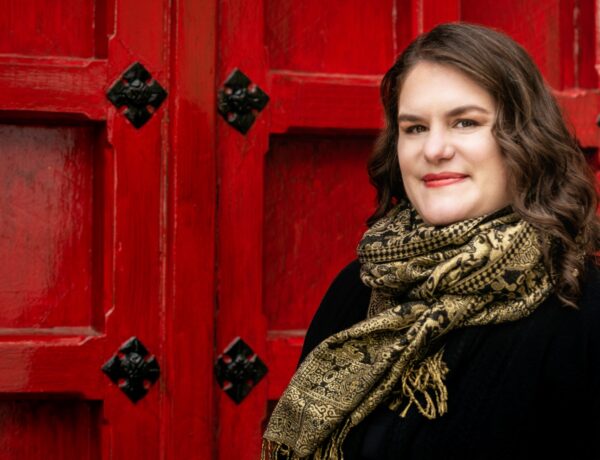Junot Díaz was born in the Dominican Republic and raised in New Jersey. He is the author of the critically acclaimed Drown; The Brief Wondrous Life of Oscar Wao, which won the 2008 Pulitzer Prize and the National Book Critics Circle Award; and This Is How You Lose Her, a New York Times bestseller and National Book Award finalist.
He is the recipient of a MacArthur Genius Fellowship, PEN/Malamud Award, Dayton Literary Peace Prize, Guggenheim Fellowship, and PEN/O. Henry Award. A graduate of Rutgers College, Díaz is currently the fiction editor at Boston Review and the Rudge and Nancy Allen Professor of Writing at the Massachusetts Institute of Technology.
Photo credit: Nina Subin
Each week, we publish a new daily writing routine from a famous author. Subscribe to our newsletter so you don’t miss out!
Hi Junot, welcome to Famous Writing Routines, great to have you here with us today! Your book The Brief Wondrous Life of Oscar Wao was a huge critical success, winning the Pulitzer Prize and the National Book Critics Circle Award. Can you tell us a bit about the inspiration behind the story and the character of Oscar Wao?
Thank you for having me. Books have so many parents sometimes it’s hard to say which of these has custody, so to say. Without question I was inspired by the silence in the literature – the fact that there were so very few books about the Dominican diasporic experience and of those books none of them dealt with the world that I grew up in. A culture’s silence tends to be the crucible from which emerges a lot of our art.
Within the hegemonic Dominican culture that I was raised in, certain kinds of nerdiness were discouraged and having grown up a big ole nerd I was eager to tell a story about a Dominican nerd – a Dominican nerd who wanted to be a writer, who played a LOT of role playing games and belonged to a very traumatized family. And then of course there was my historical obsession with the 30 year reign of the dictator Trujillo, with those Dominicans who survived that terrifying period. All of these various parents converged in me and helped bring the novel into the light.
The book deals with themes of family, love, and the immigrant experience. Can you talk about why these themes are important to you and how you explore them in your writing?
Immigrants intentionally sacrifice home and all that means in order to find a new place in the world. Home becomes the fire from which a new home can rise like a phoenix. But what a terrible sacrifice, because once you’ve burned your old home your new home will never be entirely untroubled – how could it be? So naturally I’m interested in the condition of home, in the search for homes. Home after all means more than people who have them will ever know; only those who have lost their homes are able to access the full breadth of the meaning of that word, of that concept.
Love of course is deeply related to home. To find love is to find a home, not in the spatial world, but in the world of human connectedness. The search for home, in any context, is always already fraught for migrants and refugees and therefore has the potential to generate deeply generative art. I always loved the idea of a diasporic Dominican family, searching for home and simultaneously searching for love. The two kinds of searches are not only different sides of a coin; they represent different scales of belonging, of longing, of agency. Which also interested me very much on a formal level.
Your writing style has been described as “adrenaline-powered prose” and “dazzling hash of Spanish, English, slang, literary flourishes, and pure virginal dorkiness”. How did you develop your unique writing voice?
My voice, I’ve always wondered about the descriptions of my voice, how accurate any of that is, but doubts aside, my voice was a way for me to draw my reader closer. One needs to create shortcuts in any book. We can’t really represent the full complexity of the world, much less the human heart – we deploy short courts that help us powerfully approximate these infinities.
Voice goes a long way in convincing most readers that they are in touch with a human story. Voice is also helpful when you don’t want your reader to notice your moves as a writer. A lot of what makes a novel cool is cool because it functions unnoticed in the background. Voice can help keep the cool in the background by directing the reader in a different direction.
I put my voice together through long years of experimenting. Listening to charmers in the world and reading charmers on the page. Learning what approaches one can take and what approaches one cannot. Ultimately I wish there was a magical formula but for me it was always the hard dumb work of trial and error.
Discover the daily writing habits of authors like Stephen King, Neil Gaiman, and Gillian Flynn with Famous Writing Routines Vol. 1 and learn how to take your writing to the next level. Grab your copy today!
You also have a background in teaching and are currently a professor at the Massachusetts Institute of Technology. How does your experience as a teacher influence your writing and vice versa?
I try my best in the classroom and at the writing desk but I’m not sure that one really helps the other. To teach well means you ain’t really writing that well – teaching takes up a lot of time after all. Same with writing. I like them both quite a lot in the end but one always wonders how much more one would have written had one been able to just write.
You have received many prestigious awards and fellowships, including a MacArthur “Genius” Fellowship, PEN/Malamud Award, Dayton Literary Peace Prize, Guggenheim Fellowship, and PEN/O. Henry Award. Can you tell us what these recognitions mean to you and how they have impacted your writing career?
Awards and recognitions allow you more time to write; they help get you invited to all sorts of places and give you opportunities like this one. They help sell a few more of your books. They help, ultimately. It’s just sad that we have to give prizes at all. I know that booksellers are helped immensely by prizes but in a more perfect world I’d rather have more readers for everyone than prizes of any kind.
As for me individually the Pulitzer changed my career forever and yet I’m not sure I’m completely OK with that. It brought on a lot of attention which wasn’t good for my writing. Most of the artists I know love themselves some attention. Me, not so much. I had a long career before I won anything, when no one knew me even in high literary circles and it was nice to write so freely, to be no one’s idol or bugbear.
Can you tell us about your writing routine? What does a typical day look like for you?
My writing routine begins with my reading. I read immense amounts which means of course that I write a lot less because I’m reading so much but that can’t be helped. I read a book every three or four days; five days when I’m teaching. The reading inspires my ideas, my sentences, my imagination, my sense of vocation. My love of reading reminds me why the hell I’m in this crazy game in the first place.
As for the actual writing: I write in the morning, very early. I wake up a few minutes before 5 every day, like clockwork. Don’t even need an alarm. Unless I’m on a deadline I don’t work past lunch time. I listen to soundtracks while I write, the pulpier the better. Have a fondness for Conan the Barbarian and many of the Ennio Morricone scores.
What does your current writing workspace look like?
I destroyed my spine when I was younger with years of delivering pool tables, lifting weights, running. These days I have to write while lying in bed. Which sucks. Means you have easy access to your books or maps etc. And when the going gets tough the temptation to fall asleep is so damn strong. Not recommended but you make do, right? If you’re a writer you always make do.
Affiliate disclaimer: Some links on this website are affiliate links. We may earn a small commission if you make a purchase through these links, but only promote products we truly believe in. We disclose affiliate links and give honest reviews.



No Comments